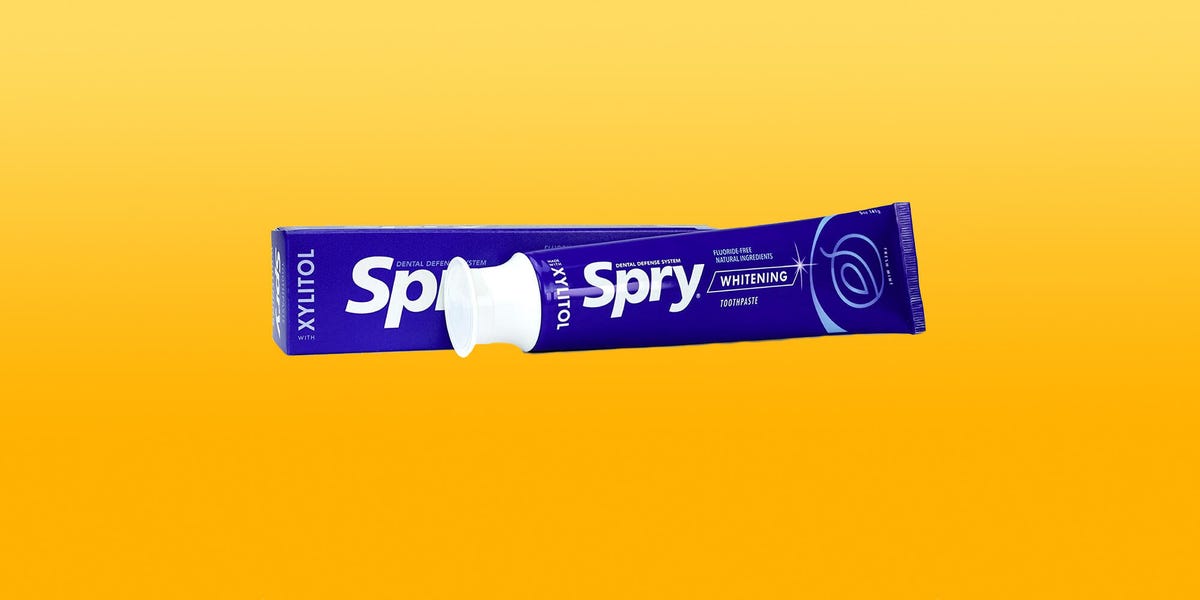Once you finish brushing your teeth, what step do you take next? Do you normally rinse your mouth? That’s what I used to do. I’d even go over my teeth with a wet toothbrush to remove any remaining bits of toothpaste. I learned from a dentist’s TikTok that rinsing off excess toothpaste isn’t the most effective way to keep my teeth in the best shape.
Now, I spit out as much toothpaste as possible without rinsing so it can do its job for longer. I wasn’t sure why I was doing this or what the benefits were until I spoke with Dr. Edmond Hewlett, consumer adviser for the American Dental Association and a professor at UCLA School of Dentistry, to find out why you shouldn’t rinse your mouth with water after brushing your teeth.
Why you should stop rinsing with water after brushing
Fluoride is an important ingredient in toothpaste that helps make your tooth enamel harder and more resistant to acids that cause cavities. Hewlett says it’s the most well-established effective ingredient in toothpaste, so make sure yours has fluoride.
When brushing your teeth, you clean any film and bacteria from food and sugary drinks. When you go a step further and skip rinsing, you’re leaving the fluoride from the toothpaste in your mouth for a longer time, giving you a better effect from the fluoride.
Wait at least 15 minutes after brushing to drink water. After brushing your teeth, Hewlett explains, your saliva will clear the toothpaste out so you won’t taste it all day.
What if you’ve always rinsed after brushing?
If you’re just learning about this tip, you may think you’ve been undoing all your hard work of brushing every day. That’s not true. Hewlett says as long as you brush the standard twice a day for 2 minutes each time, the fluoride will remain in your mouth to help protect your teeth.
You’re still doing what you need to do to have good oral health and protect your teeth. Not rinsing is just an extra step to help the fluoride be even more effective.
“When you measure a person’s fluoride levels in saliva, if they don’t rinse, there’s more fluoride,” Hewlett said. However, it won’t be a waste of your time if you rinse. He said research is still being done to determine the difference it makes in the long term to prevent cavities.

Your own dental health also plays a role
There are different risk levels for getting cavities per person, Hewlett said. “If you typically don’t get cavities, then you should continue using fluoride toothpaste. The decision to rinse or not to rinse after brushing probably won’t make a difference.”
On the other hand, for those who struggle with cavities, not rinsing is probably a better decision. Additionally, you should get help from your dentist to find out why you’re getting cavities regularly. For instance, it could be your eating habits, snacking on sugary foods or not brushing your teeth regularly. If you’re at higher risk for cavities, you should do everything you can to help prevent them.
Can you use mouthwash after brushing?
Most mouthwashes contain less fluoride than toothpaste, so rinsing with mouthwash right after brushing can wash away the concentrated fluoride from your teeth. Instead, use mouthwash at another time, like after lunch or coffee.
Additional tips on brushing your teeth
Here are some additional tips for keeping your oral health up to par.
- Always use a soft bristle toothbrush and never medium or hard. Hewlett said anything but soft can increase the risk of gum recession.
- It doesn’t matter if you floss before or after brushing your teeth, as long as you floss once daily to remove plaque and stuck food.
- You don’t have to aggressively brush your teeth to get them clean. While scrubbing your dishes with extra force may make them extra clean, it’s unnecessary for your teeth and can lead to gum recession.
- Gently brush along the gum line with a soft bristle brush to help prevent gum disease.
- Always consult with your dentist for personalized advice. They understand what your oral health profile looks like.